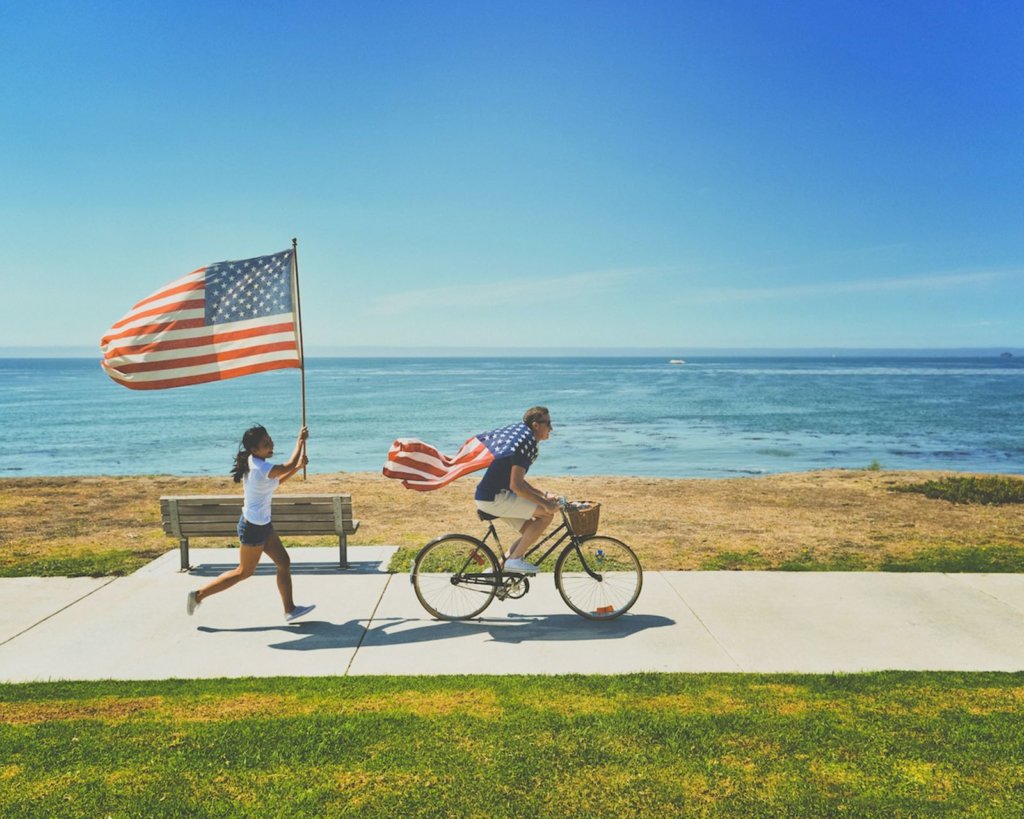As California enters its second lockdown, I keep thinking about freedom. What does it mean to be free? Some people would say it’s doing whatever you want, whenever you want. But is that really true?
I read a great essay by Rebecca Solnit on “Masculinity as Radical Selfishness.” She mentions the axiom, “My right to swing my arm ends where your nose begins,” which is about balancing personal freedom with the rights of others. It’s also about watching out for someone else’s rights. She says what we’re seeing a prevalence of right now though is the idea that my right to swing my arm doesn’t end where your nose begins, but instead just doesn’t end. And in fact, your nose is not my problem and should get out of the way.
She also says in the U.S., “unlimited armswinging peaks at an intersection between whiteness and maleness, with plenty of white women on board who seem to believe that a white lady’s job is to protect white men’s armswinging (often with a selfless disregard for their own noses).” I think she’s right. Often what we associate with “freedom” is really just hypermasculinity because again to quote Solnit, the isolated individual (ideally white and male) are the metaphorical fists and must rule supreme. However, there’s a lack of understanding here that no man is an island; we don’t live in our own self-contained bubbles accomplishing everything by ourselves. It seems to me this pandemic more than anything is highlighting that. We want someone else to cut our hair. We want someone else to make our food. We want someone else to sit next to us and smile.

Would this woman be able to travel safely without the limit of road rules? No. Photo by Averie Woodard on Unsplash
Humans are social creatures. We are not meant to live in isolation. The hypermasculine freedom some in the U.S. idealize is a myth because what happens when that individual gets sick? They rely on the collective to help them out – they go to the hospital for care, or a doctor, or the drugstore.
My spiritual teacher says “just as my life is important to me, others’ lives are equally important to them; and if we do not give proper value to the lives of all creatures, then the development of the entire humanity becomes impossible.”
It becomes impossible because individual life is bound to the collective. Collective welfare lies in individuals and individual welfare lies in collectivity. There is no instance where my individual welfare doesn’t contribute to collective welfare. And furthermore, real freedom requires constraint. That may seem like an oxymoron but hear me out. Retired Navy SEAL, author, and podcaster Jocko Willink says, “Freedom is what everyone wants – to be able to act and live with freedom. But the only way to get to a place of freedom is through discipline. If you want financial freedom, you have to have financial discipline. If you want more free time, you have to follow a more disciplined time management system. Discipline equals freedom applies to every aspect of life: If you want more freedom, get more discipline.”
He’s talking specifically about individual freedom of course, but I think the same message applies to collective freedom. We’re able to drive safely, for the most part, because there are rules associated with driving. We’re able to buy food we enjoy because there are regulations that keep expired food off the shelves. I realize there are problems with the rules and regulations I listed, but I’d much rather have those problems than going into a grocery store and wondering if the food I’m buying will poison me.
Real freedom requires discipline and a care for others. Anything else is just selfishness that will eventually catch up to us.
I dream of a world where we recognize true freedom requires giving up a little bit of freedom. A world where we understand we can’t do what we want whenever we please without consequences for ourselves and others. A world where we understand real freedom requires limits.
Another world is not only possible, it’s probable.
It’s a three-day weekend here in the U.S. and it has me contemplating another three-day weekend from 2013. It was Labor Day and I had just moved into a new place, a cottage. I was excited at the prospect of not sharing any walls or ceilings with a neighbor and looked forward to much-needed peace and quiet. However, on that Saturday, the property manager of the complex played loud music well into the night – 1 a.m. ticked by, and then 2 a.m.
I called her, no answer. I texted her, no answer. I left my bed and knocked on her front door. No answer. Finally, I walked around to her bedroom window and knocked, asking her to turn off her music. She complied. Peace at least.
However, the next morning, I woke up to 27 text messages from her that were mildly threatening: “How dare you knock on my window? How would you like it if I knocked on your window? I’m going to tell the landlord!” etc. I apologized for startling her but explained it escalated to that point because I wasn’t able to reach her in a less intrusive way. I thought that would be the end of it. Wrong. The next day I overheard her talking to my next-door neighbor about me. But what stuck out the most is she said, “It’s the weekend! I’m allowed to be as loud as I want on the weekend!”
No. Just no. You are NOT allowed to be as loud as you want because you don’t have work the next day. There are still rules and noise ordinances. What makes the situation even more infuriating is as a property manager she was supposed to be enforcing the rules, not breaking them.
This woman comes to mind frequently because her sense of entitlement and self-centeredness runs rampant in the U.S. I’m seeing that a lot especially during this pandemic. Some people think and behave as if their individual needs are more important than collective needs.
My spiritual teacher says, “But if we analyze with a cool brain, it becomes quite clear that just as my life is important to me, others’ lives are equally important to them; and if we do not give proper value to the lives of all creatures, then the development of the entire humanity becomes impossible.”
Furthermore, if we look at it a little more closely, we see collective welfare lies in individuals and individual welfare lies in collectivity. I tried to think of an example where my individual welfare doesn’t contribute to collective welfare, and none came to mind. In the case of my former property manager, her perceived individual welfare negatively impacted the collective because it meant not only I, but the other tenants, may also have been groggy and sleep-deprived, which in turn affected our mental functioning, which in turn affected our interactions with ourselves and others, and so on.
If I flip that around, getting enough sleep positively impacts the collective for the same reasons. In fact, my spiritual teacher is quite adamant that individual liberty should not go against the interests of the collective body. He says it is important for all of us to develop a rationalistic mentality, or “awakened conscience.” What that means is studying the pros and cons of each decision, but also factoring in whether the decision contributes to the welfare of all.
At this point people might be thinking I’m “un-American,” to which I say yes, I am, if “un-American” means I care about how everyone is doing, not just my small circle. Yes, I’m un-American if that means I value not just my life but life in general. Yes, I’m un-American if that means I think we should all learn how to live in harmony with one another in a more fair and equitable way. Yes, I’m un-American if that means I have my sights set on a better world for us all.
I dream of a world where we recognize collective welfare matters. A world where we realize individual welfare lives in the collective and collective welfare lies in the individual. A world where we all take care of each other. A world where one person is not allowed to negatively impact those around them. A world where we let ourselves be “un-American.”
Another world is not only possible, it’s probable.
